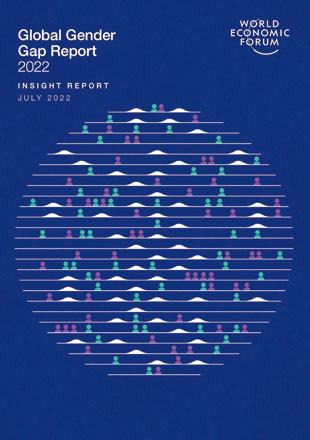AMMAN — Jordan ranks 145th out of 146 countries with regard to women’s participation in the labour force, according to the Global Gender Gap Report 2022, delivered by the World Economic Forum.
The report also indicates that Jordan maintained almost the same score as last year, of 0.639 or 122nd in the world, which was 5th in the MENA region at the time.
For the more general category of women’s economic participation and opportunity, Jordan ranks 125th globally, compared with 133 in 2021. While on the women’s educational attainment index, Jordan advanced by 18 spots from last year, ranking 66th this year compared to 84th in 2021, according to the report.
The report also indicates that women’s representation in public and political life in Jordan dropped from 2021 to a rank of 136th globally. The current Cabinet includes only two female ministers and women constitute only 12.4 per cent of the Lower House. Women’s representation in the Senate now constitutes 10.8 per cent, down from 15.4 per cent in 2020.
According to its website, the Global Gender Gap Index provides benchmarks on the current states and evolution of gender parity across four key dimensions: Economic participation and opportunity, educational attainment, health and survivaland political empowerment.
In 2022, the global gender gap has been closed by 68.1 per cent, meaning that — at the current rate of progress — it will take 132 years to reach full parity, the report noted.
The report states that the Middle East and North Africa region has the second-largest gender gap yet to close, only behind South Asia.
According to the Secretary General for the Jordanian National Commission for Women (JNCW) Salma Nims, “the private sector resists all policies and efforts which work on increasing women’s participation in the labour market”, because it is “suffering” already.
The weak infrastructure and the centralisation of work in specific cities also play a role in women’s participation in the workforce, due to the lack of feasibility for working women, Nims told The Jordan Times.
“Traditional gender roles that force women to do house chores while they also have a full-time job is a lot, therefore, lots of women choose not to work instead as it would not be feasible for them,” Nims added.
The work environment in Jordan is a “repellent environment” for women, as the labour market still does not offer equal opportunities and proper protection for women, she said.
“Women remain in the same positions for years and they do not have the same opportunity as men to advance in the work place,” Nims added.
Regarding the study of women’s political participation, Nims said that it was “expected” for Jordan to score a lower rank this year, as “there are no consistent efforts or decisions from the government to increase women’s participation in Parliament or ministerial positions, as they only try to cover the quota rate”.
“Changing the elections law offers a great potential for increasing women’s participation, but it will still be very difficult to achieve higher percentages and it would not be enough,” Nims continued.
Sociologist Hussein Khozahe noted that there are few opportunities for women, as the labour market cannot provide sufficient job opportunities due to the difficulty of transportation between governorates, low wages and the general economic situation in the Kingdom, in addition to lack of company-provided childcare.
He encouraged the government to work on empowering and employing women, especially nowadays because young men are increasingly looking for working women, when getting married, to share the costs of life.
Rania Saleem, a young Jordanian woman, expressed her disappointment with the situation of Jordanian women’s economic participation.
“It is very sad to see that until today in 2022, women in Jordan still suffer from many issues in the workplace and labour market in general, which should and could easily be solved,” Saleem told The Jordan Times.
She indicated that the lack of safe and reliable transport and proper child care services in the Kingdom are the main obstacles which stand in the way of working women.
“Many women around me either do not have a place to leave their children in, or someone to leave them with, or they are not allowed to work because their family or spouse do not let them because of the hassle of getting to work through public transport,” said Saleem.
